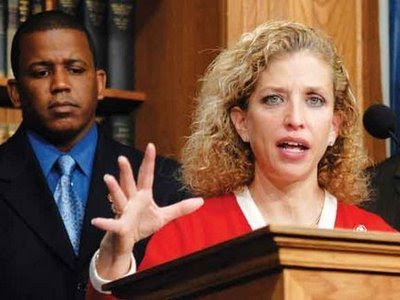 If it’s presidential campaign season, it must be time for another furor over voter fraud and voter suppression. As the Democrats did in 2008, they are again charging that Republicans are trying to use photo identification laws and other changes in election laws to winnow out would-be Democratic voters.
If it’s presidential campaign season, it must be time for another furor over voter fraud and voter suppression. As the Democrats did in 2008, they are again charging that Republicans are trying to use photo identification laws and other changes in election laws to winnow out would-be Democratic voters.
The difference this time: six more states have enacted laws, or strengthened their existing laws, requiring voters to show a form of photo identification such as a driver’s license in order to cast a ballot. The standout among the new voter ID states: Wisconsin, which may have a recall election next year for Republican Gov. Scott Walker. It also has a marquee Senate race and will likely be a battleground in the presidential race.
Last week Democratic National Committee chairwoman Rep. Debbie Wasserman Schultz launched a new mobilization effort, saying, “Republicans across the country have engaged in a full-scale attack on the right to vote, seeking ways to restrict or limit voters’ ability to cast their ballots for their own partisan advantage.”
The strategy, she contended, disproportionally affects African-Americans, Latinos, and young people and could “skew the 2012 presidential election in the Republicans’ favor.”
Assistant Attorney for Civil Rights Thomas Perez said last week that Justice Department lawyers are reviewing some of the recently-enacted state laws to ensure that they comply with the Voting Rights Act and do not have “a racially discriminatory purpose or discriminatory effect.”
Advocates of broader voting rights are looking forward to a speech on voting next week by Attorney General Eric Holder. “We’ve been pushing him hard to do that because we think it is a national crisis,” said Laura Murphy, the director of the Washington Legislative Office of the American Civil Liberties Union. “The big question is what will the Justice Department do – and that’s why we’re so excited about the attorney general’s upcoming speech.”
Democrats confront one big obstacle: the Supreme Court, in a 6-3 decision handed down in 2008 and written by Justice John Paul Stevens, upheld Indiana’s photo identification law. “There is no question about the legitimacy or importance of the State’s interest in counting only the votes of eligible voters,” Stevens said. The decision left open the possibility that future plaintiffs could try to show that, as applied in specific cases, a voter ID law is unconstitutional.
Full Article: NBC Politics — As 2012 turnout battle brews, Justice Dept. eyes voter ID laws.
